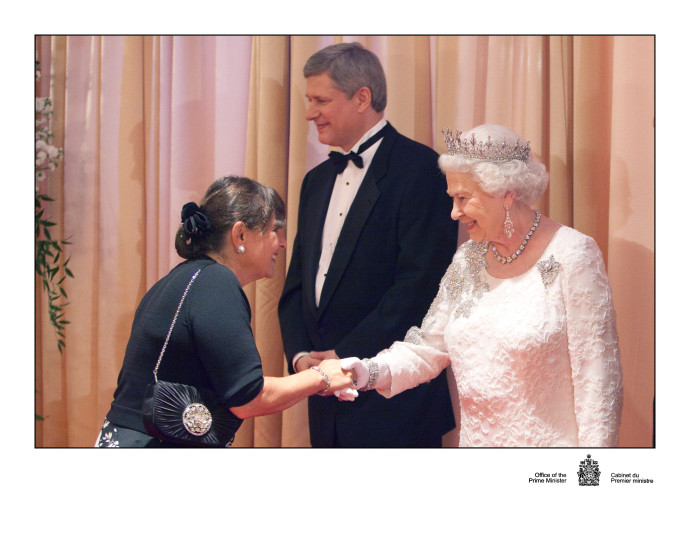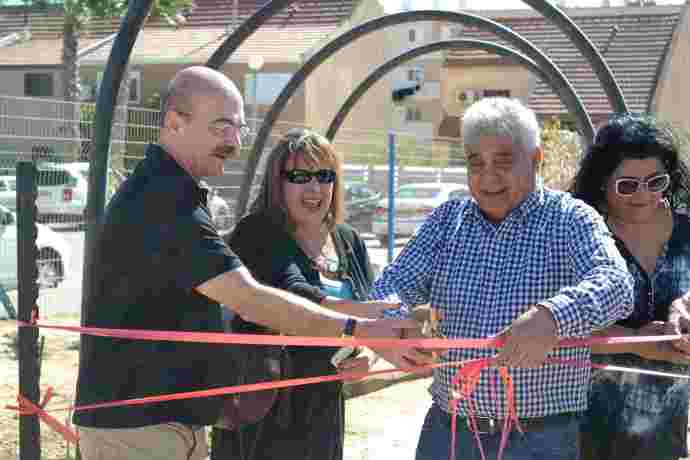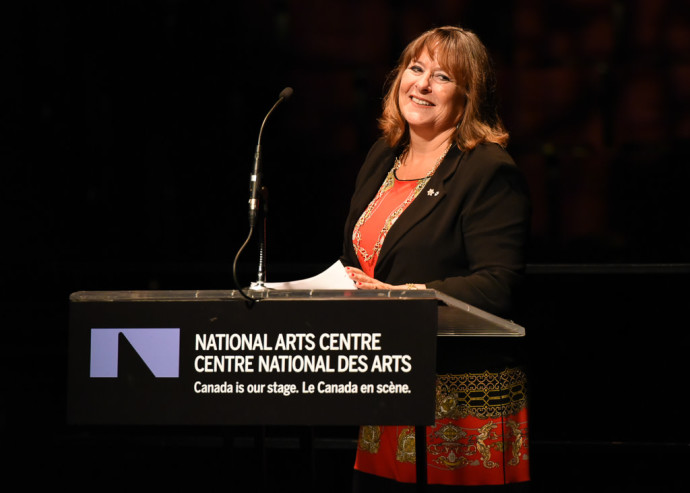‘I was thrown into the world of philanthropy,” says Gail Asper, smiling. The daughter of the late Israel Asper, the prominent Canadian business leader and entrepreneur, Asper is today the president of the Asper Foundation, one of Canada’s largest private foundations.
Trained as a corporate commercial lawyer, Asper worked in a law firm in Halifax, Nova Scotia, before moving back to her native Winnipeg, Manitoba, with her husband to work with her father, who founded CanWest Global Communications Corporation, a TV and media conglomerate. “My father had been asked to be on all kinds of boards,” she recalls. “That’s how I got involved with the Hebrew University. He said, ‘I’ve been a member of the Board of Governors for 20 years, and I think it’s time that you got involved.’”
Once Asper was asked to volunteer with various organizations, she realized the value of the work that people were doing. “When you know people, and you see what they’re doing, and the hard work they’re undertaking, the philanthropy follows. If you’ve got some mechanism for donating and a capacity, you want to help these people because I always say that people give to people. If you trust people, and you respect them, even if you don’t actually like the project as much as they do, your heart goes out to them, and you want to want to help them succeed in their vision.”

Both of Asper’s parents – her father, Israel, and her mother, Babs – were deeply involved in the local Winnipeg community, and Asper says that they led by example. “My father’s mantra was ‘give as you live,’” she says. “He was very adamant that if you were driving a fancy car or living in a nice home, you absolutely had to give to the United Way, which is the local community campaign, and you definitely had to donate to the Jewish community campaign, the Federation campaign. This was drummed into my brothers and me from the time we were very young. Of course, both my parents were very involved extensively in the community, in both Jewish and general activities.”
Gail’s parents created the Asper Foundation in 1983, because, as she says, “my father believed in making a permanent philanthropic legacy.” The foundation’s primary focus is on Jewish and Israeli causes, and it is active in Asper’s home of Winnipeg. “One of the visions that we inherited,” says Gail, “was my dad’s idea that we should be trying to do transformational giving and do things that but for our involvement wouldn’t happen.”
In January 2021, the Asper Foundation donated $5 million to the Hebrew University for the creation of Asper HUJI Innovate, the Hebrew University’s center for innovation and entrepreneurship that promotes Hebrew University as a supportive environment for entrepreneurship, cultivates an entrepreneurial mindset and skills among students, researchers and staff and serves as a catalyst for the development of start-ups and social enterprises.
As a teen, Asper frequently traveled with her parents to Israel when they attended the Hebrew University Board of Governor meetings and enjoyed the experience. “I loved meeting the eclectic people from all over the world. It was really cool to see how Jews from all around the globe would come together to support Hebrew University, and I learned the storied history of the school. I loved every aspect of Hebrew University.”

Asper was thrilled when she was asked to serve as a member of Hebrew University’s Board of Governors and started coming to Israel for the annual meetings. “I think it behooves everybody to be supporting worthwhile institutions, and Hebrew University is among the top universities around the world, which is pretty amazing, given how small Israel is. I think it is continuing to be very worthy of our support.”
Another formative experience that Asper experienced in Israel occurred when she visited Yad Vashem in 1974, as a teen. “I was thunderstruck by the scope of the Holocaust, and I was heartbroken. It was an incredibly powerful experience, and it changed me forever,” she says.
The Asper Foundation today supports Yad Vashem’s international teacher’s conferences and many of their education programs so that the story of the Holocaust can be retold to the current generation around the world.
The lessons of Yad Vashem and the museum itself also resonated in the Asper family’s monumental project – The Canadian Museum for Human Rights, the only museum in the world that is dedicated to a global perspective of human rights. The museum is the fifth national museum in Canada and is located in Winnipeg, Canada’s geographical center. The project was initiated by her father in 2002, who passed away shortly after the project began. Asper, her mother, Babs, and her siblings, David and Leonard, completed her father’s vision, opening the museum 11 years later, in 2014. “What we hope is that of the thousands of kids who visit, they will become those upstanders and those defenders of human rights and, hopefully, battle the bullies, whether it’s in the playground with the kids who want to beat someone up or on the battlefields, with the Hitlers or Putins. They will learn the tools on how to stand up for human rights.”
For Gail Asper, leaving a legacy for her family and setting a standard for behavior is key. Asper, a theater buff, quotes the lyrics of the late Stephen Sondheim, who wrote, “Careful the things you say, Children will listen.” Says Asper, “You can’t control your kids, but you can set the example, and you can tell them what your values are and why. “Our job as parents is to set the example and really encourage the next generation to take up the mantle and be involved.”

Being involved, in Asper’s way of thinking, means helping others. “There are two kinds of people,” she says, “lifters and leaners.” Lifters are those who are helping others and “lifting up” others in the community. “Being a lifter makes you stronger, and you will become a mentor to others. I love the Jewish value that everyone should be involved in tikkun olam, repairing the world.”
Leaners can be those who, through no fault of their own, face major challenges in life and need assistance, or they can be people who take selfishly, and do not donate their time and money. Asper has little patience for those in the latter group.
“Being a philanthropist isn’t about giving millions of dollars away,” notes Asper. “Being a philanthropist is like the phrase, ‘give as you live.’ Everyone should be supporting their community campaigns, things from which they derive benefits. I think without a doubt, you’ve got to be giving. I’m a big believer in grassroots giving, and no gift is too small or too large.”
Philanthropy, in her view, can also mean giving of one’s time. “If you’re asked to do something, say yes. You can always stop. You may not like it, but just try it and push yourself and if you’re asked to support – to donate something – say yes because you have no idea how depressing it is when you’re trying to raise money to get nothing. Even a small gift can be incredibly inspiring. Never think that a gift can be too small. You have no idea how it can actually inspire people to know that you’re on the right track.”
For Gail Asper, giving of her time and money helps her make a difference in people’s lives. “It is enormously satisfying to be able to help people and help their dreams be realized,” she says. “My life has been immeasurably improved by the donations that I’ve been able to make and the things I’ve been able to see happen.”
This article was written in cooperation with the Canadian Friends of Hebrew University.
